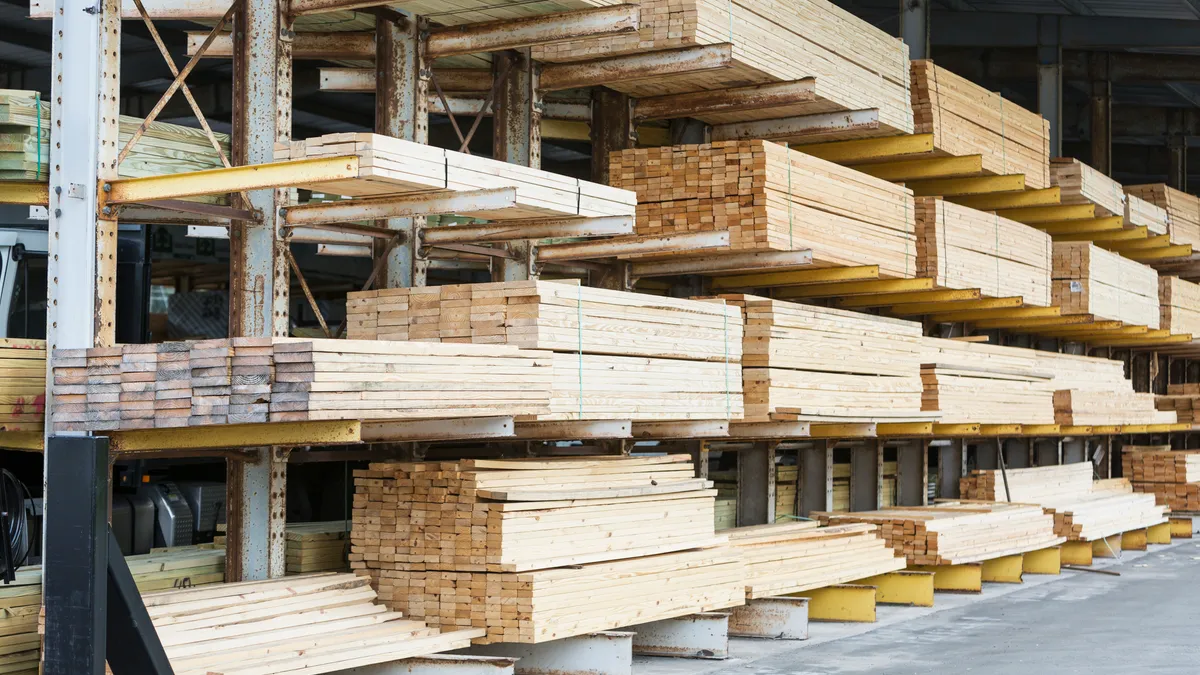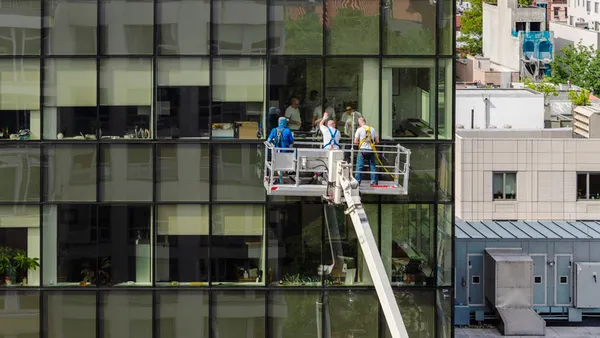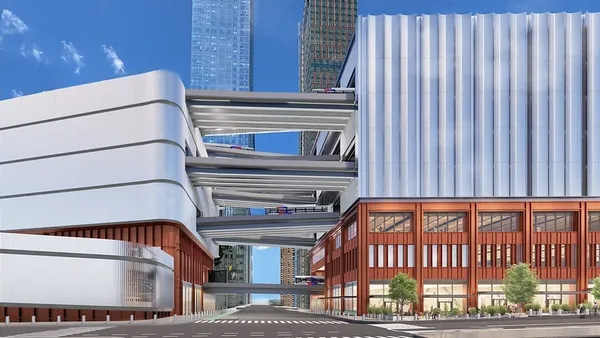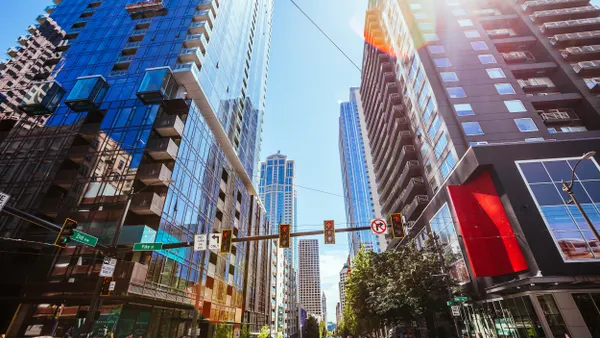Dive Brief:
- Headwinds around apartment construction have lessened a bit this year, with delays becoming less common and price increases slowing, according to the latest edition of the National Multifamily Housing Council’s Quarterly Survey of Apartment Construction & Development Activity.
- Seventy-nine percent of the survey’s respondents reported construction delays in the first quarter — an improvement from 84% in December and 97% in June 2022. Respondents who reported delayed starts cited economic infeasibility as the most common cause, followed by project uncertainty and construction financing availability.
- While material prices have risen across almost every category, the increases are much smaller than they were one year ago. Average price increases for exterior finishes and roofing, for example, fell from 14% in March 2022 to 4% in the last quarter.
Dive Insight:
Out of all the material prices tracked in the report, lumber was once again the only category to see prices fall instead of rise. Following a monumental average price increase of 45% in March 2022, lumber has been the only material to see prices fall over the last year, by a consistent 5% per quarter.
Lumber has undergone incredibly drastic price volatility since the start of the COVID-19 pandemic, with prices peaking at over $1,000 at least twice before falling below $500 per thousand board feet. As of now, the price per thousand board feet stands below $400.
As a result, survey respondents said they are no longer practicing the same warehousing and pricing mitigation strategies that they did one year ago. Over half of respondents — 56% — said they are using no price mitigation strategies for lumber at all.
Average material price changes in Q1 2023
| Material | Average price change |
|---|---|
| Electrical Components | +9% |
| Appliances | +7% |
| Exterior finishes and roofing | +4% |
| Insulation | +3% |
| Lumber | -5% |
SOURCE: National Multifamily Housing Council
The labor market is also showing signs of improvement. Only 7% of the survey’s 43 respondents cited staffing issues as a contributing factor in delays, down from 18% in December. Almost a quarter of respondents noted that their labor costs had not increased at all over the past quarter.
Despite these slight improvements, the NMHC noted that costs remain high and delays remain widespread — especially for projects that are more difficult to finance, including low- and middle-income housing.
“Supply chain constraints, still-high labor and material costs, and complex and expensive regulatory barriers continue to restrict the development of badly needed housing,” NMHC President Sharon Wilson Géno said in a press release.
Géno recently testified before the Senate Finance Committee to advocate for the implementation and expansion of tax policies, including the low-income housing tax credit, that aid and incentivize affordable housing construction. She is also working with the office of Sen. John Wyden of Oregon to develop a middle-income housing tax credit proposal.
“As pandemic-caused cost increases begin to alleviate, policymakers and private enterprise must remain focused on one clear goal — enacting policies that support increased housing development,” Géno said.












